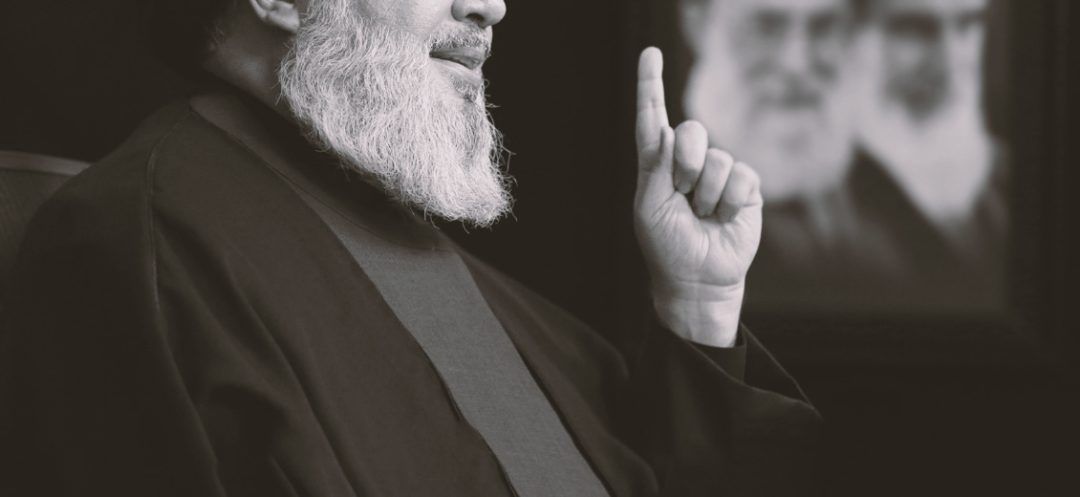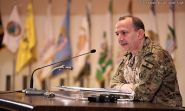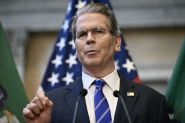
Hassan Nasrallah is no more. In a matter of seconds, the Israelis ended the life on Friday of the man who, since 1992, has led the controversial militia group Hezbollah.
The strike, which shook Beirut for almost a minute, decapitated the pro-Iranian group, which Tel Aviv has amputated, with successive raids, by killing many of its military commanders.
Succeeding Abbas Moussawi as the head of Hezbollah, Hassan Nasrallah suffered the same fate as Moussawi: liquidated by the Israelis. A curse of some sort for Hezbollah's secretary generals? Be that as it may, and in view of the death on September 27 of one of the emblematic figures of the pro-Iranian group, one question is on everyone's mind: who will succeed Hassan Nasrallah?
While Hezbollah is known for its solid hierarchical structure and close ties with Iran, notably with the Islamic Revolutionary Guard Corps, the question of its secretary general's succession has regularly been the subject of speculation. Until now, no designated successor had been officially announced, although the chairman of Hezbollah's executive council, Hashem Safieddine, was tipped to take over the reins of this armed group.
A new secretary general is due to be appointed shortly. The extraordinary meeting convened by Iran's Supreme Guide Ayatollah Ali Khamenei on Friday evening suggests that Tehran is already preparing for the next phase: a possible response to the politico-military earthquake provoked by the Israeli strike and a reorganization of its military arm in Lebanon, particularly at command level. At the same time, his adviser, Ali Larijani, announced that “the Resistance has many powerful commanders and cadres, and any leader eliminated will have a replacement.” An eye-catching comment that was immediately interpreted as paving the way for the announcement of Hassan Nasrallah's death and the choice of a successor.
With the escalation of the conflict with Israel, it will not be long until Iran appoints a new Hezbollah leader. “This means that the succession will probably depend on factors both internal (within the organization) and external (links with Iran),” explains an expert at This Is Beirut (TIB).
It will also depend on which high-ranking personality is still alive within Hezbollah after 2,200 kg GBU-72 anti-bunker bombs, “reserved for high-value targets” and developed in 2021 by the US Air Force and Boeing, were launched at Haret Hreik, targeting the Hezbollah headquarters. It was there that Hezbollah's top commanders were holding a meeting on a whirlwind visit to Beirut.
Shortly after Israeli Prime Minister Benjamin Netanyahu's speech at the UN General Assembly, the operation was launched. A targeted, high-precision operation, based on “golden information” obtained by Tel Aviv and approved by Netanyahu during his stay in New York, to eliminate his sworn enemy.
It is not yet known who was with Hassan Nasrallah at the time of the strike. According to experts interviewed by TIB, those who could potentially take over are Naim Qassem, Deputy Secretary of Hezbollah and a central figure within the pro-Iranian group, Hashem Safieddine, chairman of Hezbollah's executive council, Talal Hamiyeh, a senior member of Hezbollah's external security apparatus, head of Unit 910 and member of the Jihad Council, Ibrahim Amin el-Sayed, Chairman of Hezbollah's Political Council and Mohammad Yazbeck, one of Hezbollah's founders and representative of Ayatollah Khamenei in Lebanon and Hassan Nasrallah. But they need to be alive to do so.
Mohammad Yazbeck was apparently not at the meeting, and the fate of Hashem Safieddine remains unclear for the time being. Both are reputed to be hawks. Much tougher than Nasrallah.
There may be others, but what is certain is that the choice of the new secretary general will be dictated primarily by his ability to manage the current situation.
What is equally certain is that, with Hassan Nasrallah gone, Hezbollah's survival and future influence will depend largely on geopolitical developments in Lebanon and the region, as well as on Iran's strategic orientation.
Read more



Comments